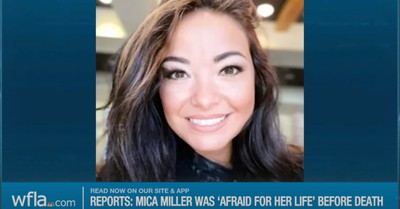How I Found My Preaching and Speaking Voice
- Updated Dec 22, 2011
Growing up, public speaking was something I both enjoyed and dreaded. I enjoyed the preparation for a speech (still do), but always got the intense butterflies in public. Especially in school where one Rick-Perry-like flub could ignite the snickering chorus in the front row of our high school. I know because when I wasn't speaking, I was a charter member of that chorus.
Before I became a pastor, I spent almost a decade as a writer and editor for a Christian organization. This meant I did very little public speaking, though towards the end of my tenure there I had more preaching, teaching, and even worship-leading opportunities. Still, when I came to Gages Lake Bible Church in the fall of 2008, I was a bit nervous in front of a crowd, especially as a preacher handling the Word of God.
But it's been almost four years of preaching and while nobody would mistake me for Tim Keller or Andy Stanley or Matt Chandler, I no longer get nervous on Sundays and actually quite enjoy public speaking. Here are a few things that helped me find my preaching and speaking voice:
- Doing It. I'm a big believer in Malcom Gladwell's 10,000 hour rule (explained in detail in his book Outliers). The idea is that the more you do something, the better you get at it. Preaching, unlike almost any other craft, is like this. You can study books on writing, take courses, hire coaches. Those things may be helpful but the best experience is actually speaking. Having to preach several times a week has really helped me gain confidence.
- Preparation. I'm a guy who has to really prepare. I'm not good off the cuff. I can't, like Mark Driscoll, preach from a cue-card with a few notes. There is no substitute for preparation, especially as a preacher. You've got to spend hours in study and really know the text. And I think this goes with any subject on which you speak. I also plan out my preaching schedule several months, sometimes an entire year in advance. I typically take a book of the Bible and divide it up according to section.
- Find Your Best Note Method. I can't stress this enough. For the first few months of my tenure at Gages Lake, I experimented with a few different styles. I mostly used a heavy outline. But I was not satisfied with my presentation and wondered why. Then I stumbled upon a series of preacher's notes posted by Josh Harris. He got the notes from leading pastors. One of the sets of notes he posted was his own. I realized he preached from a full manuscript. This is when the light bulb came on for me. I had been a writer for nearly 10 years. Words were my thing, why wasn't I leveraging my talents this way? I began writing a full manuscript and that was the point at which I grew more confident. Now I don't read verbatim. I often add things as I go. But having that full manscript gives me the confidence that my message is complete and I can go into the pulpit and deliver it. It also helps me know how long my sermons will be each week. For some, a manuscript is too confining and they are better at being extemporaneous. That didn't work for me. The key is you have to find your comfort level and stick with it.
- Be Yourself. Early on I chided myself for not being a pacer on stage like an Andy Stanley or a James McDonald. You know, guys who have a small half-sheet outline and walk around the stage. I just can't do that. It's not me. I'm pretty stationary. I really beat myself up for that for a while until my wife and I traveled to hear Dr. David Jeremiah speak. Though I had appreciated his sermons on the radio for many years, I had never heard him speak live. So when the time came for Dr. Jeremiah to speak, I was surprised to see him stand stationary at the lectern and turn pages -- just like me! Angela leaned over and said, "Hey he does it the way you do it." That gave me a surge of confidence. I realized that if it worked for Dr. Jeremiah, it could work for me. I realized that God made me the way He made me and could use me in that way. That's not to say I'll never change or grow as a speaker, but I have the freedom of being myself.
Those four keys have helped shape my preaching. I'm still new at this and have quite a bit to learn. But I'm amazed by how God can take me, with my own unique package of talents and weaknesses, and use me for His glory.



















